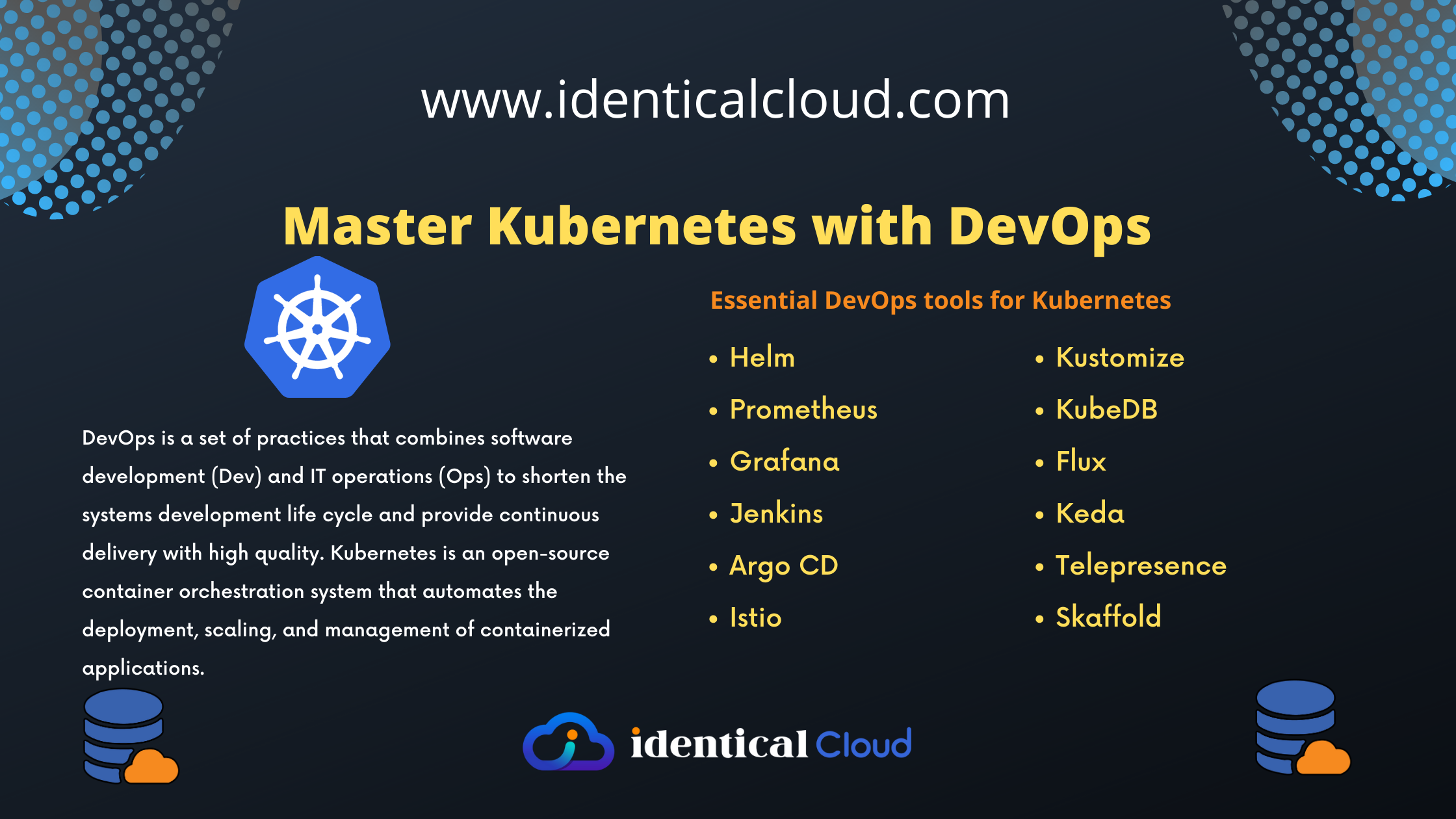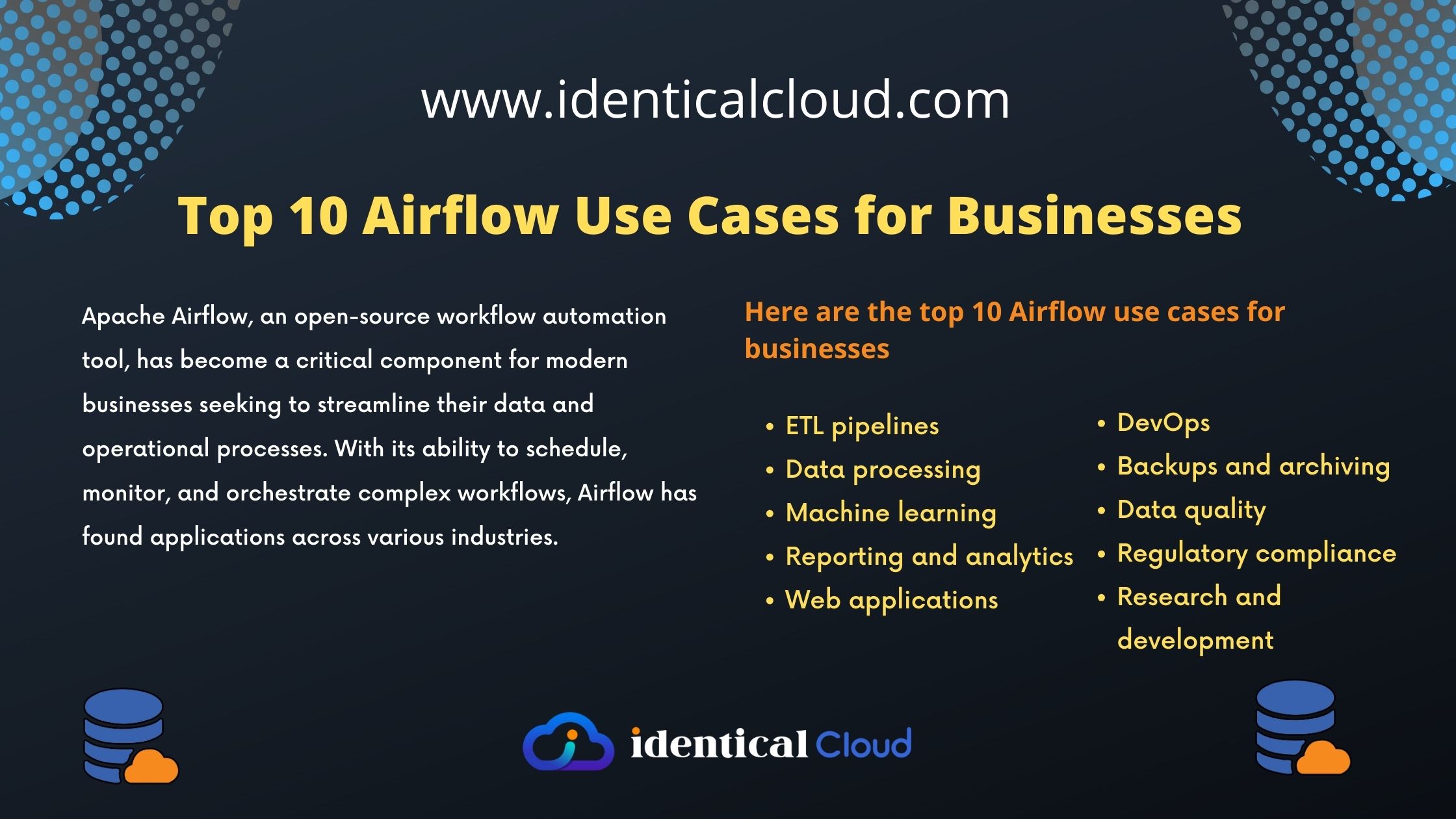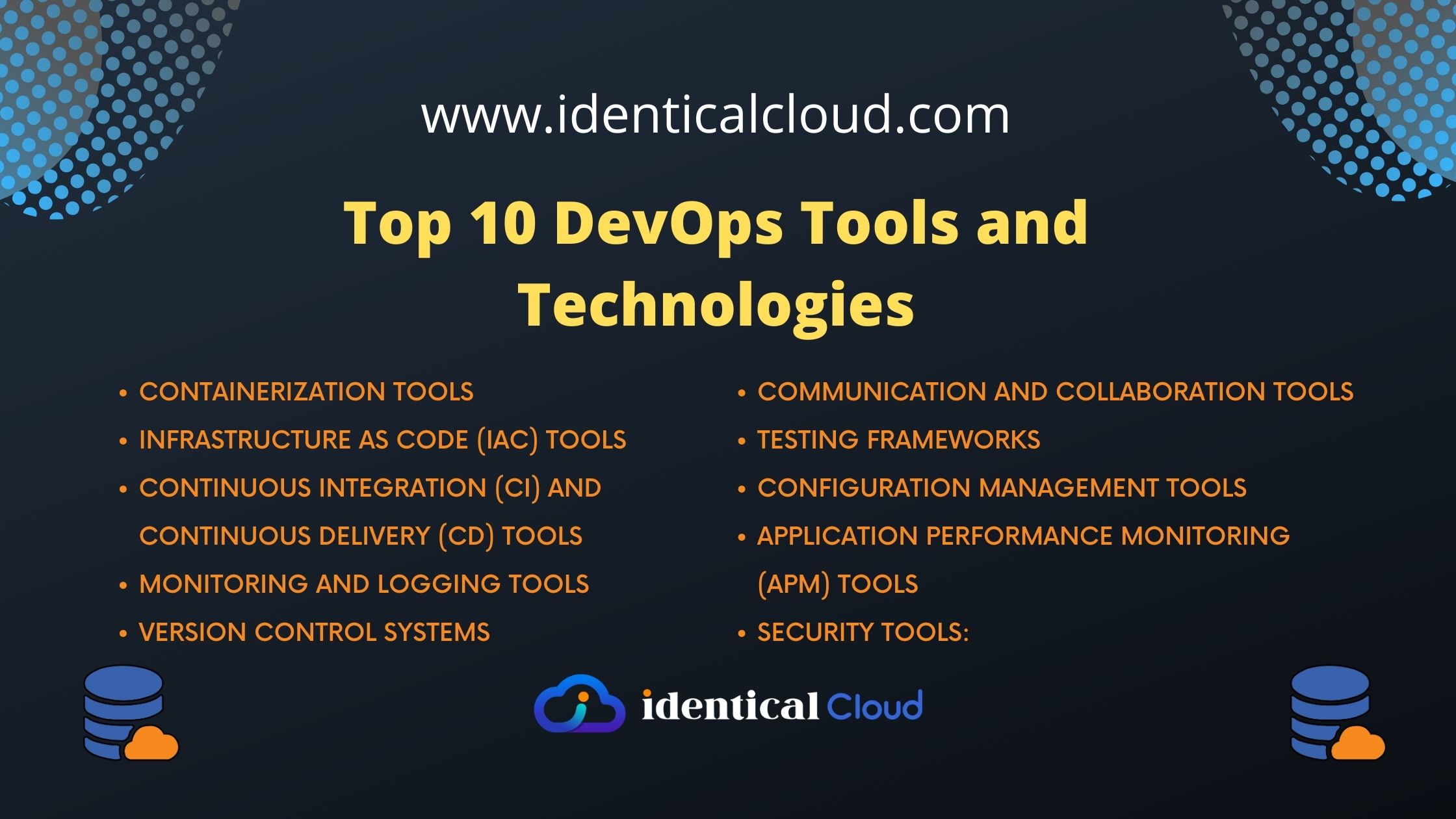
Master Kubernetes with DevOps: A Comprehensive Guide to Using Kubernetes for DevOps
Master Kubernetes with DevOps
DevOps is a set of practices that combines software development (Dev) and IT operations (Ops) to shorten the systems development life cycle and provide continuous delivery with high quality. Kubernetes is an open-source container orchestration system that automates the deployment, scaling, and management of containerized applications.
The power of Kubernetes
Kubernetes is a powerful tool that can help you to improve your DevOps workflow in a number of ways:
- Increased agility: Kubernetes can help you to deploy applications more quickly and easily. This can help you to respond to changes in demand more quickly and to stay ahead of the competition.
- Improved reliability: Kubernetes can help you to ensure that your applications are always available. This can help you to reduce downtime and to improve the user experience.
- Reduced costs: Kubernetes can help you to save money on resources by automating the deployment and scaling of your applications.
Essential DevOps tools for Kubernetes
There are a number of essential DevOps tools that you can use with Kubernetes, including:
1. Helm:
Helm is a package manager for Kubernetes that can help you to automate the deployment of your applications.
2. Prometheus:
Prometheus is a monitoring tool that can help you to track the health and performance of your Kubernetes clusters.
3. Grafana
Grafana is a visualization tool that can help you to display the data collected by Prometheus.
4. Jenkins:
Jenkins is a CI/CD server that can help you to automate the build, test, and deployment of your applications.
5. Argo CD:
A continuous delivery tool for Kubernetes that helps in automating the deployment of applications to multiple clusters.
6. Istio:
As you move towards microservices, Istio helps with service mesh management, making your system more secure and resilient.
7. Kustomize:
A native Kubernetes configuration management tool that enables you to customize and manage YAML manifests.
8. KubeDB:
Facilitates running stateful applications on Kubernetes by providing a simple and consistent interface to manage databases.
9. Flux:
An operator that ensures that the state of your Kubernetes cluster matches the desired state defined in Git, enabling GitOps practices.
10. Keda:
Enables event-driven autoscaling for container workloads on Kubernetes, scaling based on the number of events received.
11. Telepresence:
Allows developers to work on Kubernetes applications locally, making it easier to test and debug code in a real cluster environment.
12. Skaffold:
Automates the workflow for building, pushing, and deploying applications on Kubernetes, ideal for iterative development.
Best practices for advanced DevOps with Kubernetes
Here are some best practices for advanced DevOps with Kubernetes:
- Use a container registry: A container registry is a central repository for storing and managing your container images. This can help you to keep your container images organized and secure.
- Use a continuous integration/continuous delivery (CI/CD) pipeline: A CI/CD pipeline is a set of automated steps that can help you to build, test, and deploy your applications. This can help you to ensure that your applications are always up-to-date and reliable.
- Use a monitoring and alerting system: A monitoring and alerting system can help you to track the health and performance of your Kubernetes clusters. This can help you to identify and troubleshoot problems before they impact your users.
- Infrastructure as Code (IaC): Leverage tools like Terraform or Kubernetes YAML manifests to define infrastructure, making it reproducible and version-controlled.
- GitOps: Use Git as the source of truth for your cluster’s desired state, allowing for easy rollbacks and change management.
- Continuous Integration and Continuous Deployment (CI/CD): Automate the build, test, and deployment processes to achieve faster release cycles and ensure code quality.
- Container Security: Implement security best practices like image scanning, RBAC, and network policies to protect your Kubernetes cluster and applications.
- Scaling Strategies: Employ Horizontal Pod Autoscaling (HPA) and Cluster Autoscaler to optimize resource utilization and handle varying workloads effectively.
The future of DevOps with Kubernetes
Kubernetes is a powerful tool that is changing the way we develop and deploy applications. As Kubernetes continues to evolve, it is likely to play an even greater role in DevOps.
In the future, we can expect to see Kubernetes being used to deploy more complex applications, such as microservices-based applications. We can also expect to see Kubernetes being used to automate more of the DevOps workflow, such as the build, test, and deployment of applications.
The Synergy between Kubernetes and DevOps
Kubernetes is an open-source container orchestration system, while DevOps is a set of practices that combines software development (Dev) and IT operations (Ops). These two technologies can be used together to create a powerful synergy that can help organizations to improve the speed, reliability, and efficiency of their application deployments.
Kubernetes is an open-source container orchestration system, while DevOps is a set of practices that combines software development (Dev) and IT operations (Ops). These two technologies can be used together to create a powerful synergy that can help organizations to improve the speed, reliability, and efficiency of their application deployments.
Kubernetes provides a number of features that can be beneficial for DevOps:
- Automated deployment and scaling: Kubernetes can automate the deployment and scaling of containerized applications, which can help DevOps teams to save time and resources.
- Resource management: Kubernetes can help DevOps teams to manage resources efficiently, which can help to reduce costs.
- Monitoring and alerting: Kubernetes can provide monitoring and alerting capabilities, which can help DevOps teams to identify and troubleshoot problems quickly.
DevOps practices can also help to improve the performance of Kubernetes clusters:
- Improving communication: DevOps practices can help to improve communication between Dev and Ops teams, which can lead to better decision-making and faster problem resolution.
- Ensuring compliance: DevOps practices can help to ensure that Kubernetes clusters are compliant with security and other regulations.
- Improving collaboration: DevOps practices can help to improve collaboration between different teams within an organization, which can lead to better overall outcomes.
The synergy between Kubernetes and DevOps can be a powerful force for improving the way that organizations develop and deploy applications. By combining the strengths of these two technologies, organizations can achieve greater agility, reliability, and efficiency in their application deployments.
Here are some specific examples of how Kubernetes and DevOps can be used together:
- A DevOps team can use Kubernetes to automate the deployment of a new application. This can be done by creating a Kubernetes manifest file that specifies the configuration of the application and its dependencies. The manifest file can then be used to deploy the application to a Kubernetes cluster.
- A DevOps team can use Kubernetes to scale an application up or down based on demand. This can be done by using Kubernetes’ built-in scaling features or by using a third-party scaling tool.
- A DevOps team can use Kubernetes to monitor the health and performance of an application. This can be done by using Kubernetes’ built-in monitoring tools or by using a third-party monitoring tool.
By using Kubernetes and DevOps together, organizations can achieve greater agility, reliability, and efficiency in their application deployments.
Kubernetes is a powerful tool that can help you to improve your DevOps workflow. By following the best practices outlined in this blog, you can master Kubernetes and use it to deploy applications more quickly, reliably, and cost-effectively.









